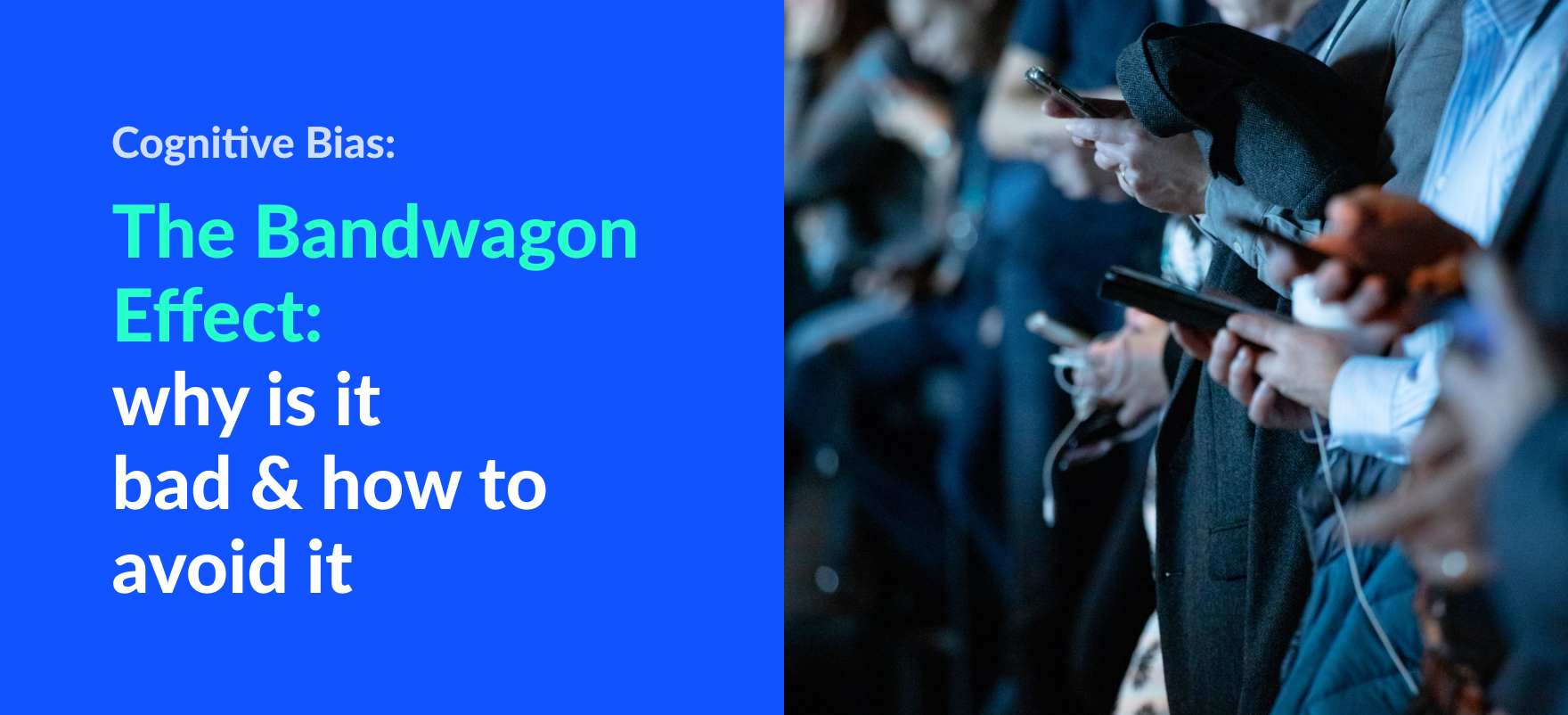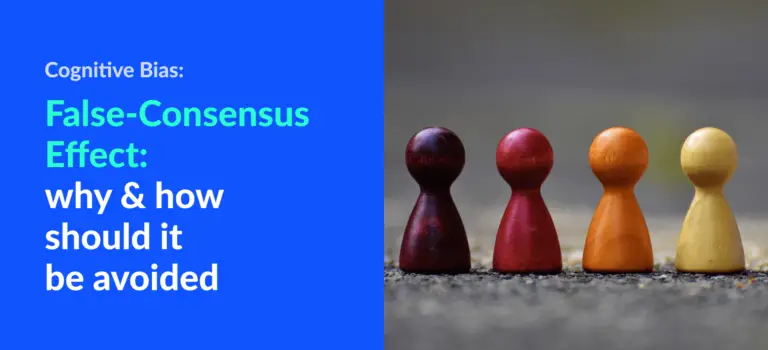The Bandwagon Effect: Why is it Bad & How to avoid it
What does the Bandwagon effect mean?
The Groupthink and Bandwagon effect is a type of cognitive bias where we believe events, ideas, and trends solely because a large majority of people believe it.
Taking the side of a contender in a boxing match because a lot of people support him is an example of this bias.
People affected by Bandwagon Effect generally do not research and come up with their own opinion. Instead, they rally on others’ opinions and embrace it as their own. The beliefs may or may not be true.
The groupthink and Bandwagon effect is related to herd psychology. Herd mentality or mob mentality describes how people can be influenced by their peers to adopt certain behaviors irrationally. The groupthink effect also describes the same sentiment but the general population influence people instead of peers.
Why is the Bandwagon effect bad?
Here are some of the reasons why this effect is considered bad.
- Affects rational thinking.
When we take sides based on people supporting it, it is obvious that we are not rationally thinking. - Jumping to conclusions.
Because of the effect, we jump to conclusions without processing whether it is true or not. This leads to countless troubles like false accusations. - May harm innocent people.
Jumping on a bandwagon causes problems like damaging the reputation of innocent people. Falsely accusations or misinformation will leave a bad mark on a person’s reputation even after proven guilty.
How to avoid the Bandwagon effect?
Considering how bad the effect is we have gathered a few ways to avoid it.
- Always crosscheck information on the internet
Checking the validity of any information is necessary. Asking the source or checking various sites helps us reach a credible conclusion. - Try not to jump to conclusions
Jumping to conclusions is what allows the Bandwagon effect to be so effective. Always stay neutral until enough evidence is provided. - Be more open-minded
We cannot use past actions as an example. Mentality like “He would not do something like that” or “It has never happened before” should be avoided.
Bandwagon Effect in Social Media

Bandwagon Effect is one of the most effective cognitive biases. And now that social media is at its peak, the effect has become even more dangerous. Social media has become a catalyst for the effect to grow.
The Internet’s cancel culture or online shaming is the perfect example of how bad the Bandwagon effect has gotten. The cancel culture is people on the internet trying to prove to people of someone’s wrongdoings.

People accusing others with crimes that they may or may not have committed have become a lot more common. Videos on YouTube titled “Exposed” or “The truth about..” and news sites making claims on their own without proofs are the most common examples. People comment about their opinion without researching and jump to conclusions and start the Bandwagon effect.
Social media, however, does not only bring bad. There have been cases where the same Bandwagon effect helped people get back on their feet. With charity events and fundraisers, social media has also brought joy to countless people. The biggest problem is people not crosschecking information on the internet.
Summing Up
The Bandwagon effect biases on events depending on the number of people supporting it. The more the supporters, the higher the chance others will also support the event.
It is a very common effect seen almost in everyone. It is also used extensively in marketing and politics. Avoiding the effect is a must so we can properly process events on our own concise.







